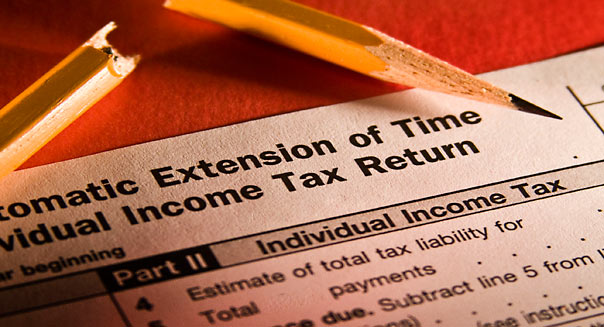Business Tax Return Extension Due Dates
If I file an application for an extension on my business taxes, how long does the extension last? In other words, when are my taxes due at the end of the extension?
Before answering that question, remember three things:
Even if you are filing an application for an extension, you must pay the taxes due by the regular tax due date, depending on your business type.
There is only one extension per tax year. You can’t keep getting multiple extensions.
Note that tax return and extension due dates change each year, based on when the date occurs. If a return due date is on a weekend or holiday, the actual due date is the next business day.
Filing an Extension Application
First, you must file an application for an extension with the IRS no later than the due date of the tax return. The due date depends on the type of tax return. Some dates have been changed, effective with the 2016 tax return year (filed in 2017):
Sole proprietorship and single-member LLC tax returns, filed on Schedule C and included with the owner’s personal tax return are due on April 15, for the previous tax year. So you must file an extension application for a Schedule C and personal return by the tax return due date – April 17 in 2017.
Partnership tax returns are due on 15th day of the 3rd month after the end of the partnership’s tax year (a month earlier than previously). Since most partnership have a December 31 year end, partnership tax returns and extension applications are due March 15 of the following year.
S Corporation tax returns are due 15th day of the third month after the end of the company’s fiscal (financial) year (a new date, beginning with 2016 taxes). All S corporations have a December 31 year end, so the due date for the extension application is March 15.
C Corporation tax returns are due on the 15th day of the 4th month after the end of the fiscal year. For corporations with a December 31 fiscal year end, the extension application is due April 15.
If the tax return due date falls on a weekend, the due date is moved to the first following work day. For example, if the 15th of April is on Sunday, the due date is April 16.
You can file an extension application online or through your tax software or your tax preparer.
When Extended Tax Returns Are Due
The IRS sets different automatic extension times for different types of returns. The deadlines are for months after the original tax return due date for each business type. Due dates extensions are:
6 months for partnership returns (this includes multiple member limited liability companies filing as partnerships). For a partnership with a December 31 year end, the extended tax return is due September 15.
6 months for corporate returns and s-corporation returns. For a corporation with a December 31 year end, and for all S corporations, the extended tax return is due September 15.
6 months for sole proprietorship’s, who are filing Schedule C along with their Form 1040, and for single-member limited liability companies filing as sole proprietors. For sole proprietors, all of whom have a December 31 year end, the extended tax return is due October 15.
If your corporation or partnership does not have a December 31 fiscal (financial) year end, you will need to calculate the number of months for the tax return due date, then add the number of months for the extension. For example, for a September 30 year end for a corporation, the corporate tax return is due February 15 of the following year and the extended tax return is due August 15 of that year.
NOTE: Even if you extend the time for filing your tax return, you must pay the amount due for the tax year. An extension is for filing, not payment.






